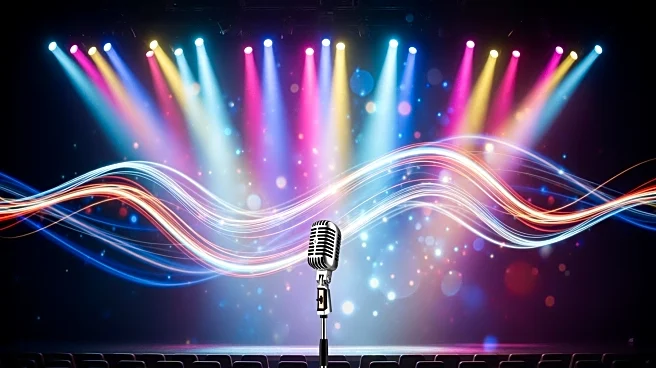What's Happening?
The American Civil Liberties Union (ACLU) held its first Creatives for Freedom benefit concert at Pioneer Works in Brooklyn, New York. The event featured performances by Sheryl Crow, Maggie Rogers, St.
Vincent, and others, aiming to support the ACLU's efforts in protecting civil rights and liberties. The concert was part of a broader initiative to unite leaders from various creative industries to highlight critical civil liberties issues. Nahal Zamani, ACLU's director of state campaigns, emphasized the importance of creative voices in informing audiences and driving social change. The concert included performances of songs that addressed themes of war, freedom, and social justice, with artists expressing their support for the ACLU's mission.
Why It's Important?
The concert underscores the role of artists and creative industries in advocating for civil liberties and social justice. By leveraging their platforms, artists can reach new audiences and inspire action on pressing issues such as immigrants' rights, racial justice, and LGBTQ rights. The ACLU's initiative highlights the intersection of art and activism, demonstrating how cultural events can contribute to broader societal change. This collaboration between the ACLU and artists reflects a strategic approach to raising awareness and mobilizing support for civil liberties, which are increasingly under threat in today's political climate.
What's Next?
The ACLU plans to continue its Creatives for Freedom campaign, building momentum towards change and inspiring more people to join the movement for a more equitable and free future. Future events may involve more collaborations with artists across various disciplines, further integrating creative expression with advocacy efforts. The organization aims to expand its reach and impact by engaging diverse audiences and fostering sustained action on civil liberties issues.
Beyond the Headlines
The concert also highlighted the historical relationship between artists and civil liberties movements. Dread Scott's participation and recounting of his experiences with flag desecration laws illustrate the ongoing struggle for artistic freedom and expression. The event serves as a reminder of the power of art to challenge societal norms and provoke critical discussions about rights and freedoms. As artists continue to engage with these themes, they contribute to a cultural shift that prioritizes justice and equality.








